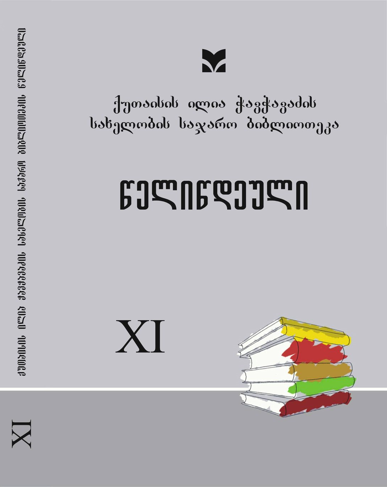A Georgian Woman of the Second Half of the 19th Century in Soprom Mgaloblishvili’s Short Story „In the Great Hall“
Keywords:
Folklore, Georgian Folk Literature, Sophrom Mgaloblishvili, Novel, New Time, Georgian Woman, SatireAbstract
The second half of the 19th century is a different era in the characterization of the Georgian society in fiction. What was the profile of a Georgian woman in the new century? This is still thought by a romantic poet (Nikoloz Baratashvili), who represents the era of Georgia before the loss of independence and at the same time idealizes the „old mothers“ and fear that in the new time they may be threatened by moral change, which contributed (especially to the upper class) strengthening the practice on the background of habits of the attractive side of a beneficial marriage or a different life. This process can be seen in part in the later controversy with the realist poet and playwright Giorgi Eristavi („Mad,“ „The Controversy“), Lavrenti Ardaziani, and popular writers from the 1970s and 1980s. From this point of view, the work of the popular writer Soprom Mgaloblishvili (1851-1925) is noteworthy, in which the moral face or interests of different layers of the Georgian society were visibly reflected.
This issue with Mgaloblishvili is presented next to the reflection of the peasants’ life with a kind of nihilism by the testimony of the representatives of the high circle of his modern era, especially women, which is completely different from the model of Nikoloz Barashvili („Fate of Kartli“ - Sofia) mothers. The article focuses on Soprom Mgaloblishvili’s short novel „The Great Hall“ (1885). The novel is not included in existing editions. It was partially published (first chapter) in the newspaper „Droeba“ in issue 20 of 1885 and continues in the newspaper „Iveria“ in issue 10 of 1865. The short story was published separately together with the short story „On Tsvrevi“ by Grigol Kipshidze in 1886 in „Tbilisi“. The Georgian writer sharply criticizes women in a high society whose interests are far from the patriotic problems of the world. While foreigners in love with Georgia decided to study the Georgian language.
These works are presented in a more novel genre, which is being developed in one episode, on the background of the fancy ball of a high society meeting in a large hall.
Mgaloblishvili’s above-mentioned novel is an ideological continuation of the issue presented to Giorgi Eristavi about the superficial change of modern women. And despite its low artistry, it does not lose its dignity to this day.




